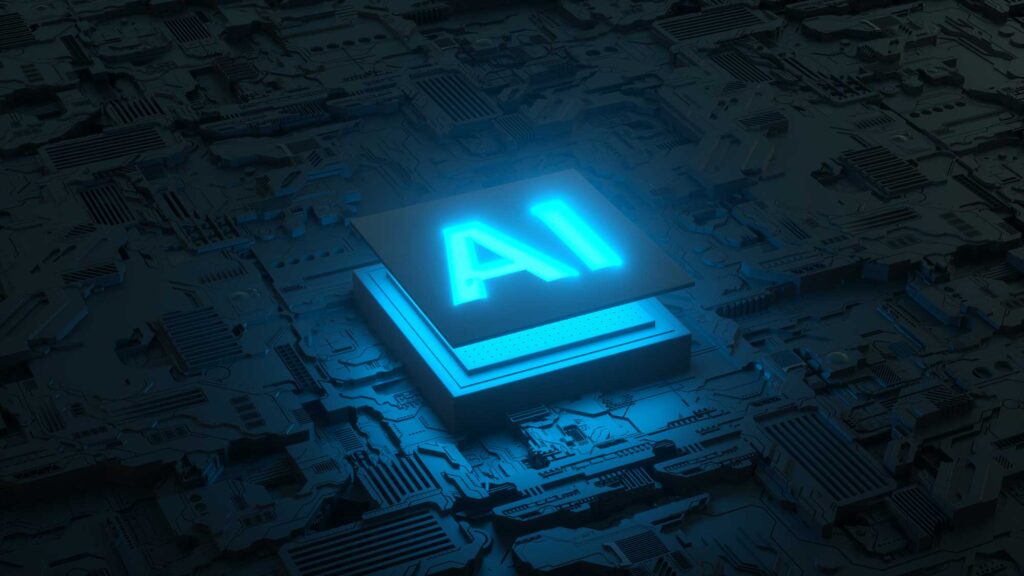Artificial Intelligence
Artificial intelligence (AI) is powering change in every industry across the globe. From speech recognition and recommender systems to medical imaging and improved supply chain management, AI technology provides enterprises the compute power, tools, and algorithms their teams need to do their life’s work.
What is Artificial Intelligence?
Artificial intelligence is a wide-ranging branch of computer science concerned with building smart machines capable of performing tasks that typically require human intelligence. Artificial intelligence applies machine learning, deep learning, and other techniques to perform complex tasks in a way that is similar to how humans solve problems.

The Benefits of AI
Companies can benefit from the use of artificial intelligence in numerous ways.
- Reduced operational costs
- Save time and money by automating manual work
- Increased efficiency
- Increase productivity
- Avoid mistakes caused by ‘human error’
- Grow revenue
- Make faster business decisions
- Analyze large amounts of data to generate quality leads and grow customer base
- Identifying and maximizing sales opportunities
- Forecasting demand
- Improved customer service
- Better, personalized customer experiences using insights from predictive analysis
Artificial Intelligence Use Cases
Leading oil and gas companies are harnessing the power of AI to future-proof operations, accelerate outcomes, and make smarter decisions at every stage of the supply chain.
Upstream
Upstream operations can use AI to Improve oil exploration, production, and labor efficiencies while reducing operational risk. Examples include:
- Oil Exploration utilizing data analytics to identify oil reserves and drilling targets
- Drilling optimization by Improving the rate of penetration to drill faster and more effectively
- Optimizing production by streamlining oil extraction methods to maximize field asset values
- Avoiding production failures and downtime by predicting equipment maintenance needs
- Optimizing land-based rig locations to improve site development, rig operations, resource management, and labor costs
- Integrating environmental, social, and governance objectives into field operations to build models for continuously tracking and reducing carbon emissions
Midstream
Midstream operations can use AI to ensure secure and efficient oil processing and transportation. Examples include:
- Optimizing the supply chain by managing inventory levels more efficiently to reduce overall costs and accelerate delivery
- Forecasting demand by predicting future oil production needs to optimize delivery resource planning
- Preventing security and fraud losses through proactive risk management
Downstream
Downstream operations can use AI to optimize fuel price, the customer experience, and non-fuel upsell opportunities. Examples include:
- Determining optimal fuel prices based on seasonal, environmental, and event-based trends
- Identifying ideal retail sites based on regional demographics to yield more revenue
- Developing data-driven trading strategies that increase top-line growth and optimize pump price
- Increase customer lifetime value with personalized recommendations of non-fuel products like drinks and snacks
Leaders in the construction and engineering industries are harnessing the power of AI to reduce building costs, reduce expensive errors, reduce worksite injuries, and make building operations more efficient. The potential applications for AI in construction and engineering are vast. Some examples include:
- Planning the routing of electrical and plumbing systems in modern buildings
- The development of safety systems for worksites
- Tracking the real-time interactions of workers, machinery, and objects on construction sites
- Sending alerts for potential safety issues, construction errors, and productivity issues
Traditional document management using manual workflows can result in lost productivity, lack of organization, and poor customer service. Companies can integrate AI into their document management system to speed up the process. Some areas where AI is changing the businesses manage documents include:
- Automating classification and processing
- Data extraction
- Clustering documents
- Bringing order to unstructured data
- Supporting content and document development
- Securing documents and data
Managing the complexities and data of payroll management can be a challenge for most businesses. Artificial intelligence can efficiently handle payroll data and remove the chances of human error. AI can optimize mundane tasks like calculating salary and recording work hours. Some of the ways payroll management can become better with AI include:
- Faster and accurate classification of employees for payroll calculation and tax band assignment
- Improved interactivity, connectivity, and query resolution through AI-powered chatbots
- Comprehensive compliance with the dynamic regulatory landscape
- Quicker and precise analysis of data for devising innovative payroll strategies
- Better decision-making due to data-based insights and forecasts
- Faster induction/relieving of employees into payroll system on entry/exit
Reap the Benefits of Artificial Intelligence
Onset Technologies provides a range of project management, planning, and consulting services for businesses. As a business intelligence and data analytics consulting company, Onset Technologies helps clients harness the power of Artificial Intelligence to achieve their goals. If your business wants to gain productivity and competitive advantage using AI, contact us today and speak with one of our IT professionals.

